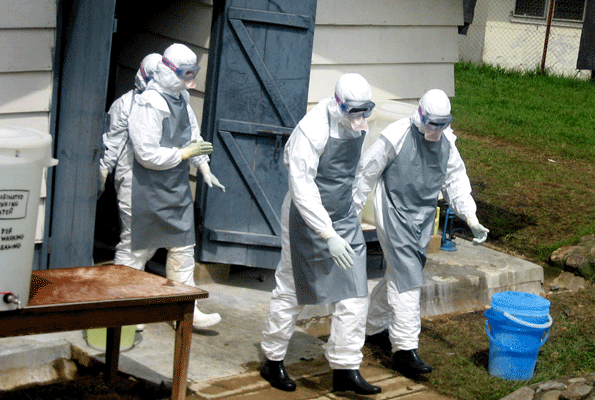Prime
What Ebola outbreak means for Uganda

The country experienced outbreaks of Ebola in 2000, 2014, 2017 and 2018, with the first outbreak claiming the highest number of lives, 224, according to information from the World Health Organisation (WHO).
What you need to know:
- The country experienced outbreaks of Ebola in 2000, 2014, 2017 and 2018, with the first outbreak claiming the highest number of lives, 224, according to information from the World Health Organisation (WHO).
Ugandans on Tuesday woke to the news of an outbreak of Ebola in the country, four years after the country defeated the fourth outbreak of the highly contagious and deadly disease.
The country experienced outbreaks of Ebola in 2000, 2014, 2017 and 2018, with the first outbreak claiming the highest number of lives, 224, according to information from the World Health Organisation (WHO).
While confirming the outbreak on Tuesday, Dr Diana Atwine, the permanent secretary of the Ministry of Health, announced a raft of containment measures such as the promotion of handwashing in public gatherings and increased surveillance, but travel restriction was not one of them.
“The Ministry of Health doesn’t recommend any travel restrictions in and out of the country, neither any travel restrictions with the affected areas,” she said.
Speaking to Daily Monitor on Wednesday evening, Dr Allan Muruta, the Commissioner for Public Health Emergencies at the ministry, said unlike the actions following the Covid-19 outbreak, the contacts of Ebola cases are few and can be handled without disrupting travels.
“We never institute travel restrictions for outbreaks of Viral Hemorrhagic Fever (VHF) such as Ebola because you only need close contacts,” he said.
Measures
He added: “So if you don’t interact with body fluids of someone, you cannot get affected and therefore travel restrictions are not recommended because we don’t expect that kind of closeness for the ordinary association.”
Dr Atwine asked the population in the affected area in Mubende District and other parts of the country to report suspected cases of Ebola to the nearest health facilities for assessment.
The known symptoms of Ebola include high body temperatures, fatigue, chest pain, diarrhoea, vomiting, unexplained bleeding, yellowing of the eyes. Bleeding is usually a late presentation after the above symptoms, according to the Health Ministry.
“The Ministry of Health urges all health workers to have the highest index of suspicion and maintain heightened safety precautions. Private clinics are encouraged to observe the standard operating procedures and report any suspected case to the nearest district health authorities for further investigations and management,” Dr Atwine said.
She added: “The public is urged to avoid physical contact with anyone with the above symptom, continue with washing hands and maintain good hygiene at all times. Avoid contact with body fluids that include urine, blood, sweat, vomitus and stool.”
The outbreak in Mubende is coming one month after the World Health Organisation announced an outbreak of the disease in North Kivu, the part of DR Congo bordering Uganda.
“More information is still being gathered concerning the possible source of infection and contacts for the confirmed case,” Dr Atwine said.
The confirmed case is a 24-year-old male from Mubende who died of the disease on September 19 at Mubende Hospital.




